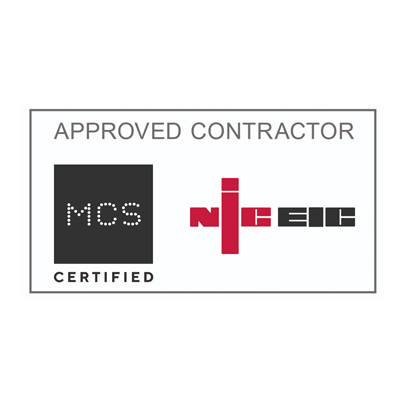July 22, 2024
5 Benefits of Lightweight Solar for the Construction Industry

Solivus, pioneers of lightweight solar panels, explore how solar power can benefit the construction industry and help it reach its Net Zero goals.
The built environment contributes to over 40% of the UK’s total carbon footprint. As summarised by the Construction Leadership Council’s CO2nstruct Zero programme: ‘Climate change is happening. Every industry has a part to play in reducing carbon emissions and meeting Net Zero by 2050. The construction industry is no exception.’
Whether its switching to renewable energy wherever possible, or utilising the benefits of solar energy in particular, the environmental question is now undoubtedly at the top of every construction firm’s agenda.
Cleaning up construction: The Construction Leadership Council’s Zero Diesel Site Route Map
Following on from the Red Diesel ban, announced in the 2020 budget, which was actioned in April 2022, 500 construction companies have signed up to phase out the use of diesel in generators by a date agreed across the industry. The Construction Leadership Council’s Zero Diesel Site Route Map was launched by the Construction Leadership Council’s CO2nstruct Zero programme in June 2023. The Route Map sets out practical measures to reduce the diesel consumption by 78% by 2035, in line with the UK’s Sixth Carbon Budget published in 2021. Harnessing renewable energy and solar energy in particular is a key aid for construction firms to win contracts.
Commercial solar installers, and lightweight solar panel specialists, Solivus are proud partners of the Construction Leadership Council’s CO2nstruct Zero Programme.
Lightweight solar savings: Cutting construction site costs
With the recent energy crisis in mind, firms have come to realise that relying on their energy from third-party companies which source electricity from the grid is not a reliable, cost-effective, or sustainable means of powering sites and projects. Installing lightweight solar panels on modular buildings on construction sites and creating a solar and battery off-grid solar system provides a cleaner, greener source of solar energy, cuts costs, and reduces the use of diesel and carbon emissions all at the same time.
Commercial solar installers, Solivus’ lightweight solar panels unlock the ‘untapped potential’ (Solar Taskforce, May 2023) of rooftop spaces (such as modular buildings and commercial buildings) which cannot take the weight of conventional rooftop solar.
Lightweight solar power to the people: Prioritising workforce wellbeing
The Zero Diesel Site Route Map also aims to improve the local air quality and public health by reducing the emissions from diesel-powered machinery and generators.
The Route Map references research conducted by the World Health Organisation on air pollution, which concluded that: ‘burning diesel in construction also has an impact on local air pollution and public health, with emissions linked to causing strokes, heart diseases, lung cancer, acute and chronic respiratory diseases.’ Source.
One of the ways to improve site air quality is by utilising renewable and solar energy. A recent article published by the Harvard T.H. Chan School of Public Health highlights how the use of renewable energy sources reduces the need for fossil fuel power generation. This ‘increases energy independence and lowers emissions of harmful gases like nitrogen oxides, sulphur dioxide, and carbon dioxide. This helps reduce premature deaths, heart attacks, asthma exacerbations, and hospitalisation for cardiovascular or respiratory issues.’ Source.
Lightweight solar: Increased energy independence
Aside from the cost and environmental benefits of lightweight solar panels, one of the greatest factors that solar energy offers is independence, particularly when paired with an off-grid solar system.
Installing lightweight solar panels and utilising off-grid solar (for example on modular buildings) means you’ll be less reliant on the national grid, which has come under increasing strain in recent years. Buildings and construction sites which are solely reliant on the grid find themselves vulnerable to power outages, which can occur as a result of bad weather or electrical issues. Modular buildings can be equipped with Solivus’ lightweight solar and battery storage system, which can store the electricity generated and use it when required.
Solar for Modular Buildings: Solivus’ Modular Buildings Solar Solution
Solivus’ Modular Buildings Solar Solution – a solar and battery storage system, has been designed in conjunction with one of the world’s leading infrastructure companies, to significantly reduce the need for diesel generators on their sites. Over a year in-the-making, and as a result of both in-house expertise and collaboration between engineering teams, the Modular Buildings Solar System has been proven to reduce diesel use, enable significant costs savings and lower CO2 emissions.
A recent report for the Modular Building Solar system (100m2 of roof space) showed potential annual savings of:
- 6,268 litres of diesel
- £10,968 of energy savings
- 17, 299 kg of CO2
Solivus offer a complete service, from initial design consultation through to finished lightweight solar installation and ongoing maintenance.
To find out more about Solivus’ Modular Buildings Solar System, or to book a call with our sales team, visit our webpage: https://www.solivus.com/modularsystems
Contact info@solivus.com for more information.
Related Articles

ACCREDITATIONS


















